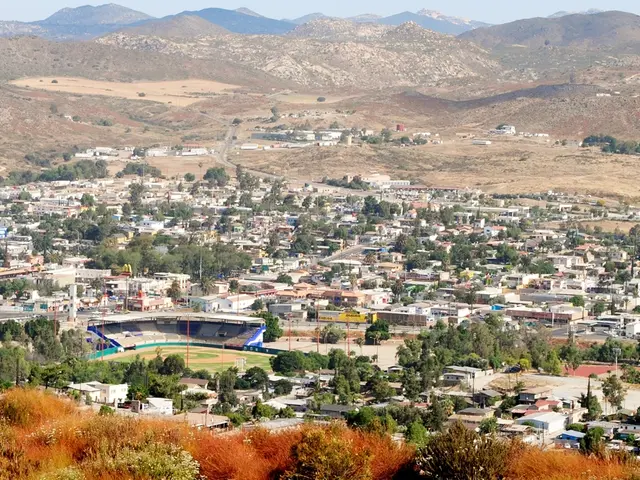Trade Swap or Exchange of Goods or Services
=======================================================================
In a world where we strive to understand our place in the universe, it's becoming increasingly clear that we are not alone. From the towering trees that provide our oxygen to the vast oceans teeming with life, each element plays a crucial role in maintaining the delicate balance of our planet. This article explores the universal law of reciprocity and how it connects us to nature.
The universal law of reciprocity, often exemplified by the "Golden Rule," is a principle that encourages us to treat others as we would like to be treated. This law is fundamental across cultures and religions, fostering mutual respect, trust, and cooperation among individuals.
In natural and social phenomena, this law plays several roles:
- Ethical and social cohesion: By considering the impact of our actions on others and expecting similar treatment in return, we can sustain harmonious relationships and societal stability.
- Biological and psychological underpinnings: Reciprocity is embedded in human social psychology, influencing social dynamics and bonding.
- Cosmic and universal patterns: The law of reciprocity is understood as part of larger cosmic or universal laws that govern patterns of energy, interaction, and interconnectedness in the universe.
- Scientific principles: In physics and material science contexts, reciprocity appears as symmetric responses or relations in systems, indicating fundamental natural symmetries and balance in physical laws.
Nature, too, operates on this law of giving and receiving. Trees absorb sunlight and ensure food safety, providing us with oxygen to breathe. The ocean serves as a food trade route and a climate temperature regulator, aiming to save humanity. It is a mirror of Earth's core depths and produces half of the world's oxygen.
The exchange that fuels our universe is the law of reciprocity. Stars have their unique stories and display a gazing glow phenomenon of being our ancient navigation. They gave us their particles so that we could now become stardust. The moon influences the cycle of life in marine coastal ecosystems, and we give it a new vantage point through scientific discovery and space exploration.
As we venture further into the cosmos, our race is to colonize the moon, Mars, and beyond. But let us not forget the importance of maintaining this universal law of reciprocity in our actions. Having the courage to make a difference is crucial, whether it be through preserving the environment, promoting ethical conduct, or fostering harmonious relationships.
In a world where we are not much different from other elements in nature, let us remember our role as caregivers and co-creators in our sustained universe. The rain teaches us that the vapor doesn't fall; it returns as a way of the sky giving back what the earth once offered its waters. The Earth provides light and energy from the sun, which is used in solar panels. The oceans offer a wealth of resources for life exchange, and the trees provide shade, wood, fruits, and wisdom.
In essence, the universal law of reciprocity serves as a foundational ethical code in human conduct, a deep-seated psychological tendency influencing social behavior, a cosmic pattern of interconnectedness, and a principle underlying natural physical phenomena. It integrates moral, social, psychological, and scientific domains by emphasizing mutual exchange and balanced interaction. Let us strive to uphold this law in our daily lives and continue to learn from the wonders of nature around us.
[1] Boyd, R. N., Richerson, P. J. (2005). Not by Genes Alone: How Culture Transformed Human Evolution. W.W. Norton & Company. [2] Onsager, L. (1931). Reciprocal relations in irreversible processes. Physical Review, 37(4), 405-437. [3] Fehr, E., & Fischbacher, U. (2003). A theory of fairness, reciprocity, and altruism. Journal of Theoretical Biology, 226(3), 387-405. [4] Lovelock, J. E. (1979). Gaia: A New Look at Life on Earth. Oxford University Press. [5] Wilson, D. S. (2012). The Social Conquest of Earth. Little, Brown and Company.
Food plays an essential role in our lives, connecting us to the environment and serving as a testament to the universal law of reciprocity. Trees provide the fruits we eat, while we, in return, protect their habitats and ensure food safety.
Weather, too, is subject to this law, with the rain returning as a way of the sky giving back what the earth once offered its waters. This cyclical exchange reflects the interconnectedness of all elements in nature, including humans, and highlights the importance of maintaining a delicate balance in our environment.
As the field of science continues to evolve, the study of climate change and environmental science becomes increasingly important for understanding the impacts of our actions on the weather and the greater environment. By upholding the universal law of reciprocity in our daily lives, we can work towards promoting ethical conduct, fostering harmonious relationships, and making a positive difference in the world.








